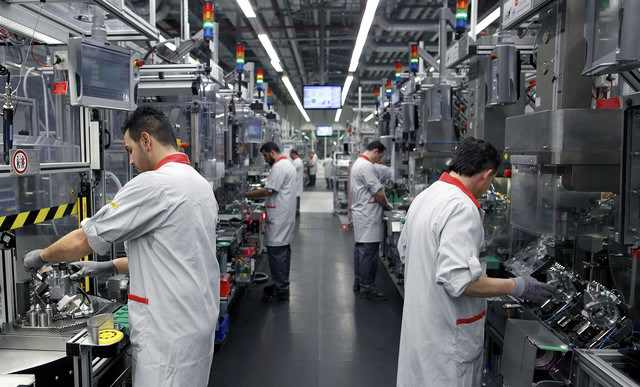After a bleak 2019, which saw a marked decline of more than 5% in world auto production (down to 91.8 million vehicles) and ended 10 years of continuous growth, the world auto industry faces a new, unprecedented challenge during 2020’s first months. The corona virus (COVID-19) began its spread just a few months ago, but already presents unprecedented challenges to one of the world’s largest industries. It may well be “the worst crisis ever to impact the automotive industry” as stated by many experts, including OICA’s president, Mr Fu Binfeng.
Initial impacts began in January, with the shutdown of the largest part of the Chinese industry in general, thereby also creating parts and components shortages impacting the industry in every corner of the world. The global spread of the virus over the last few weeks has now resulted in a shutdown of a large part of the auto industry and its many suppliers around the world.
Mr Fu stated: “Concerns for the health and safety of their employees led many manufacturers and suppliers worldwide to put in place drastic sanitary measures, leading to the strong reduction or even complete shut-down of many plants and facilities, even where it is not systematically recommended or required by the respective authorities”.
Through their national associations operating together within OICA, the world’s automotive manufacturers remain committed to protecting their employees and customers, and fully respect or even exceed government measures of restriction or confinement. In several countries, in order to help people affected by the COVID 19 virus, automakers are also establishing humanitarian projects, ranging from the production of breathing machines to the facilitation of transport of emergency and medical services.
OICA members continue working to secure the automotive sector as much as possible and are ready to begin the complex process of restarting production and sales when the crisis ends.
“The various national auto industry associations, members of OICA, are closely engaged in a constructive dialogue with their respective authorities and partners in order to soften the impact of this crisis and to ensure a swift recovery of the sector, which is a key contributor to the world economy and welfare. I have no doubt that the world auto industry, as it already did many times in the past, will prove its importance, its strength and its resilience”, concluded Mr Fu.
About OICA: The world association OICA was founded in 1919 and gathers 37 national trade associations around the world, including all major automobile manufacturing countries in Europe, America, and Asia. OICA is the only non-governmental car and truck manufacturers’ organization accredited to the United Nations and represents the technical interests in international institutions and organizations. The OICA activities contribute to the worldwide diffusion of technology, experience and know-how, to the benefit of all countries. OICA coordinates the global harmonization of vehicle regulations. The member countries are committed to the improvement of road safety and environmental protection, and they actively contribute to the global harmonization of technical regulations and standards. OICA also collects and publishes international statistics and coordinates the yearly calendar of Motor shows all over the world.



